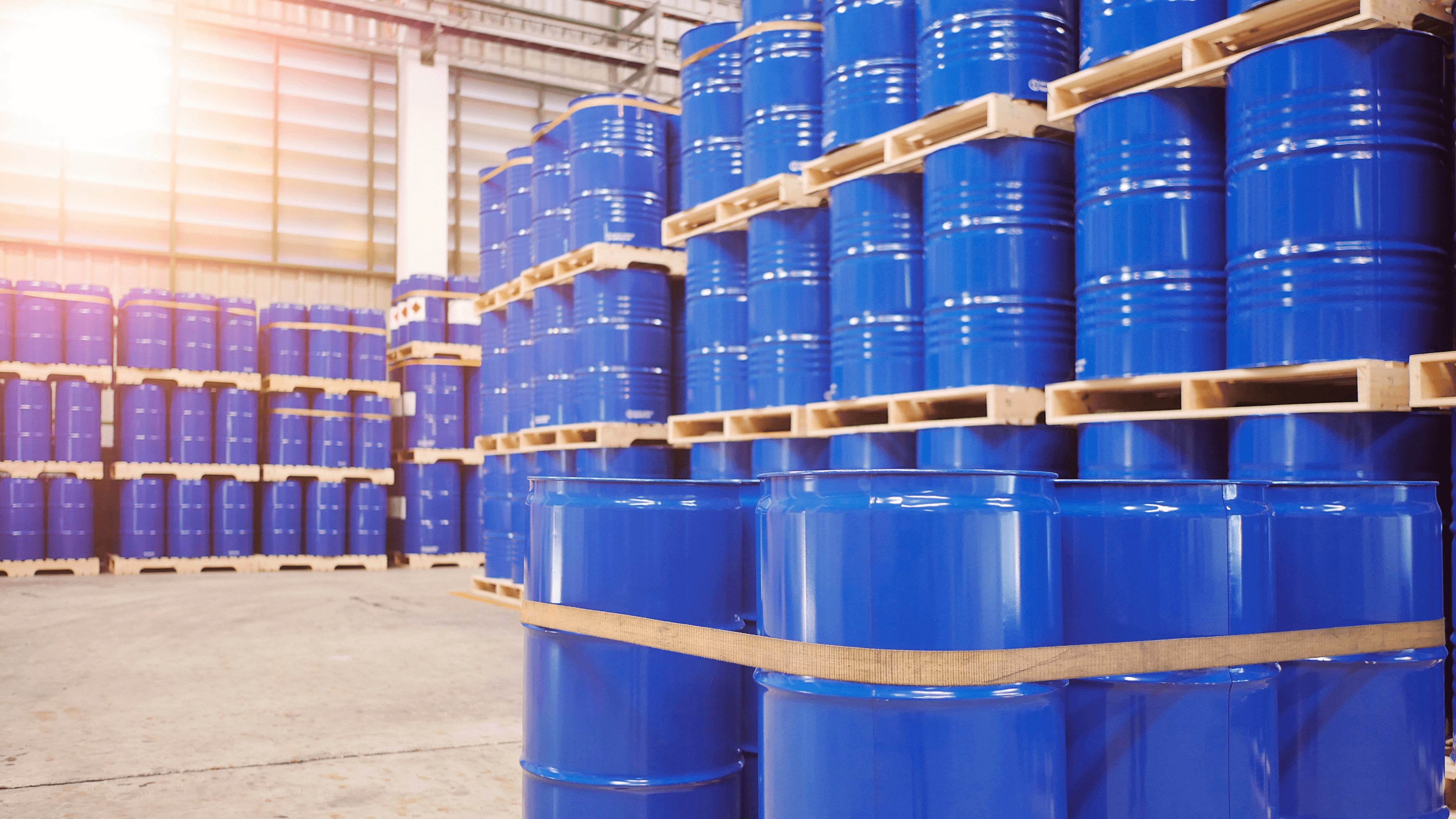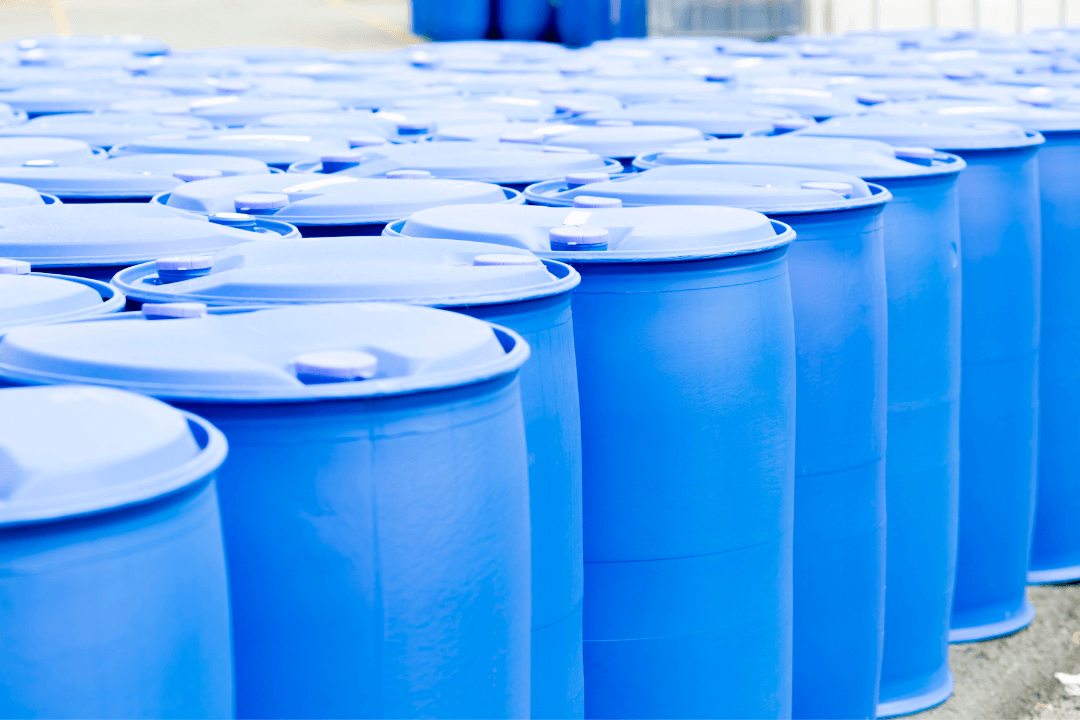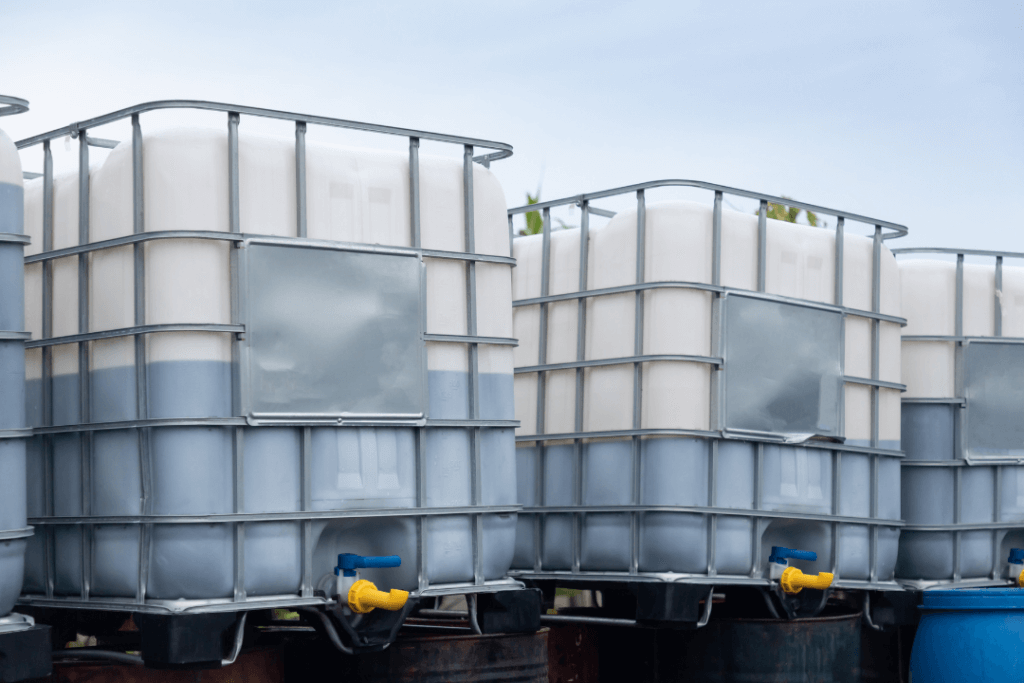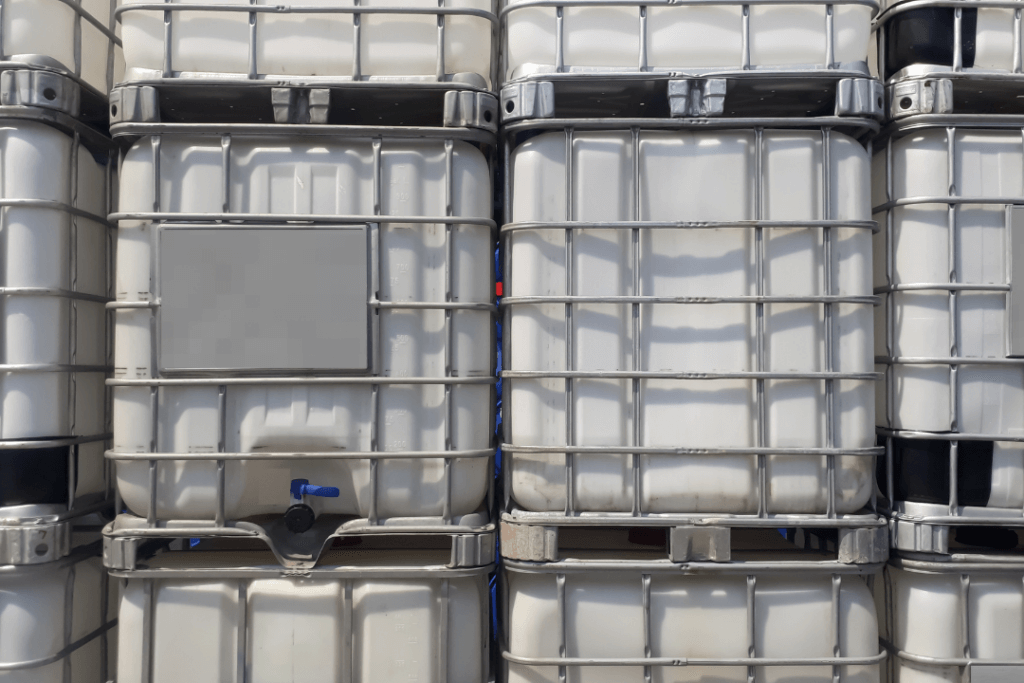When it comes to choosing the right packaging for your products, the decision between steel drums and plastic drums is crucial. Each packaging option offers distinct advantages and disadvantages, and the best choice depends on your business needs, product type, and environmental considerations. This blog will explore the key differences between steel and plastic drums, focusing on factors such as durability, cost, environmental impact, and material compatibility. We will identify the proper use case scenarios for each style of bulk packaging, supported by examples from C.L. Smith’s extensive product offerings.
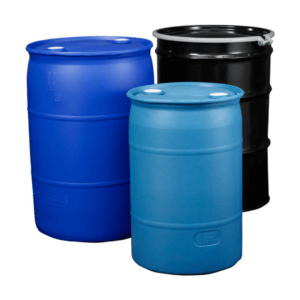 Durability & Strength
Durability & Strength
Steel Drums: Steel drums are recognized for their strength and durability. They are capable of withstanding extreme conditions, making them ideal for transporting and storing hazardous or highly reactive materials. Steel’s rigidity ensures that drums remain intact during handling and shipping, providing maximum protection for the contents. C.L. Smith offers a range of UN-rated steel drums designed to meet rigorous safety standards, ensuring that your products arrive at their destination in perfect condition.
Plastic Drums: Plastic drums are also durable but in a different way. They are resistant to corrosion and certain chemicals, making them suitable for storing products that might react with metal. However, plastic drums are generally less impact-resistant than steel drums and can be more prone to punctures or deformation under stress. C.L. Smith’s plastic drums are manufactured to high standards, offering robust performance for a variety of non-hazardous and hazardous materials, particularly in environments where corrosion is a concern.
Cost Considerations
Steel Drums: Steel drums tend to have a higher cost due to materials and manufacturing processes. However, their long lifespan and reusability can offset the initial investment, especially if your business involves frequent transport or storage of heavy or hazardous goods. The strength of steel drums also reduces the risk of costly spills or damage during transport.
Plastic Drums: Plastic drums are often more cost-effective, which can be an attractive option for businesses with budget constraints or those dealing with non-hazardous materials. They are lightweight, which can reduce shipping costs, and are often available in a variety of shapes and sizes to suit specific needs. For businesses requiring large volumes of drums, the cost savings can be significant.
Environmental Impact
Steel Drums: Steel drums are highly recyclable, with a strong infrastructure in place for recycling steel products. They can be reconditioned and reused multiple times, reducing the environmental impact over their lifecycle. Additionally, steel’s long lifespan means fewer drums are needed over time, lowering the ecological footprint. At C.L. Smith, our commitment to sustainability includes offering reconditioned steel drums, providing an eco-friendly option for businesses.
Plastic Drums: Plastic drums are also recyclable, but the process is more difficult, and not all types of plastic are equally recyclable. The environmental impact of plastic drums depends on the type of plastic used and the recycling infrastructure available. While plastic drums are generally lighter, which can reduce transportation emissions, their production and disposal can contribute to environmental pollution if not managed properly.
Suitability for Different Materials
Steel Drums: Steel drums are the go-to choice for industries dealing with hazardous, flammable, or reactive materials. Their strength and protection make them ideal for storing chemicals, oils, and other hazardous substances. C.L. Smith’s steel drum offerings include specialized coatings and linings that can be customized to suit specific product requirements, ensuring compatibility with a wide range of materials.
Plastic Drums: Plastic drums are often used for storing and transporting food products, pharmaceuticals, and chemicals that are not reactive with plastic. They are also ideal for businesses needing corrosion-resistant containers. C.L. Smith’s plastic drums are available in various FDA-approved food-grade options, making them suitable for industries where product purity is important.
When to Choose Steel Drums
If your business deals with hazardous materials, requires the highest durability, or prioritizes long-term cost efficiency, steel drums are likely the better choice. For example, a chemical manufacturer shipping reactive chemicals would benefit from the strength and safety features of C.L. Smith’s UN-rated steel drums. Similarly, businesses in the oil and gas industry often prefer steel drums due to their ability to withstand harsh environments and protect valuable products.
 When to Choose Plastic Drums
When to Choose Plastic Drums
Plastic drums are ideal for businesses looking for a cost-effective, lightweight, and corrosion-resistant option. They are well-suited for industries such as food processing, pharmaceuticals, and certain chemical applications where product compatibility with plastic is crucial. A company producing food-grade oils, for instance, might find C.L. Smith’s FDA-approved plastic drums to be the perfect solution.
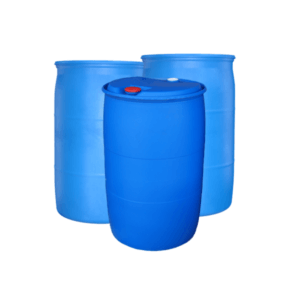 Making the Right Choice: Steel vs. Plastic Drums for Your Business Needs
Making the Right Choice: Steel vs. Plastic Drums for Your Business Needs
Both steel and plastic drums have their place in the packaging world, and the right choice depends on your specific business needs. By considering factors such as durability, cost, environmental impact, and material suitability, you can make the right decision that aligns with your operational priorities. At C.L. Smith, we offer a comprehensive range of both steel and plastic drums, tailored to meet the diverse needs of our customers. Contact us today to learn more about our product offerings and find the perfect packaging solution for your business.

Comments are closed

